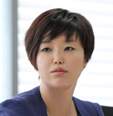Panel: Back to Winter in the Middle East?
– Talking Points: Salah Eddin Elzein
– Talking Points: Diederik Vandewalle
– Talking Points: llen Laipson
– Talking Points: Michael Hudson
Date/Time: Tuesday, April 22, 2014 / 13:00-14:15
Speakers:
Jang Ji-Hyang, The Asan Institute for Policy Studies
Salah Eddin Elzein, Al Jazeera Centre for Studies
Michael Hudson, National University of Singapore
Ellen Laipson, Stimson Center
Diederik Vandewalle, Dartmouth College
Session Description
The Arab Spring toppled seemingly unassailable authoritarian regimes across the Middle East and North Africa. The Arab world at last seemed to be on the cusp of democratization. Yet, what ensued instead was chaos. Religious sectarianism and tribalism filled the void left by now-defunct dictatorships. Liberals and moderate political Islamists face political marginalization and repression by the powerful military establishments, on the one hand, and fundamentalists, on the other. As the Arab Spring turns into Winter, what does the future hold for this region?
Session Sketch
Rapporteur: Brian Gleason
Salah Eddin Elzein opened the discussion by analyzing unrest in the Middle East from a historical perspective. The last century in the region has been full of disappointment, discontent and anger, especially within the last 40-50 years, as nation-states failed to live up to expectations or achieve the desired level of economic development. Moreover, most governments in the region have been guilty of corruption and undemocratic processes. Although there are forces within the Middle East that are focused on reform and change, other forces want to maintain the status quo. These competing groups clash due to “intertwined layers of conflict” within the region, including divergent positions on the Palestinian issue, Sunni-Shia conflicts and other sectarian tensions.
Michael Hudson noted that many conflicts in the Middle East will continue to escalate. After the military ouster of the Muslim Brotherhood, some worry about the emergence of the “Deep State” in Egypt, as the country remains turbulent and the military continues to maneuver before the upcoming election. Other potential crises in the region include whispers of a third Palestinian intifada, escalating sectarian and ethnic rivalries in Iraq, the danger of Lebanon being drawn into a larger regional conflict, and considerable unrest in Jordan at a time that it struggles to deal with a million refugees seeking a safe haven from the violence in Syria. Even if Syrian President Bashar al-Assad is victorious in the upcoming election, the unrest in the country will endure.
Ellen Laipson reminded the audience that it is impractical to be overly pessimistic about setbacks and the lack of progress in the Middle East and North Africa after the Arab Spring because the processes of change take time. Unfortunately, as we approach the twentieth anniversary of the Rwandan tragedy, which prompted the international community to say “never again!” we still don’t have the tools to stop atrocities like the ones being committed in Syria. The Obama administration’s decision not to intervene in Syria, though drawing condemnation from many in the Arab world, was understandable given the struggles of America’s drawn out attempts at peacekeeping and rebuilding in Iraq and Afghanistan. The US is now trying to guide international efforts in Syria, and is still the largest provider of humanitarian assistance, but there are no clear solutions to creating peace and stability.
Diederik Vandewalle focused on the differences between Tunisia and Libya after the Arab Spring. Tunisia can be considered a “modified success,” in part due to successful institutionalization and bureaucratization, which are essential processes in the formation of a modern state. These processes helped Tunisia’s new president to find compromises within the political system. The situation in Libya was completely different. Despite initial enthusiasm, negative aspects of Libya’s “Deep State” and oil state patronage networks emerged. A lack of institutionalization and bureaucratization fostered corruption within the political system, creating further unrest.

 Facebook
Facebook Twitter
Twitter













